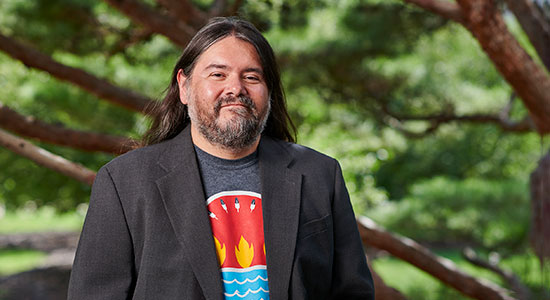
Prof. Matthew L.M. Fletcher | The Promise Not Kept
“I
grew up surrounded by adults talking about federal recognition and the
promise of ‘Indian money,’ compensation for lost treaty rights.”
I
come from Anishinaabe communities, the Grand Traverse Band Odawa and
Pokagon and Gun Lake Bodewadmi, who signed numerous treaties from 1795
to 1855 that suffered through administrative termination from the 1860s
through the 1980s and 1990s. I grew up surrounded by adults talking
about federal recognition and the promise of “Indian money,”
compensation for lost treaty rights.
My
relatives had nothing, no reservation, no tribal government, no HUD
money for housing, no IHS, no BIA, but they still ended up getting
removed to boarding schools and foster care with white families, going
to jail, and dealing with suicide and addiction. I went to law school
and chose to work with tribes to be a part of the restoration of
Anishinaabe government and culture.
A
friend once asked me what standards apply in tribal courts when a
prosecutor moves to charge a juvenile as an adult. I was taken aback. No
Anishinaabe tribal judge I know would ever agree to that. Indian
children are special, considered by some to be supernatural creatures,
deserving respect and deference. The word in Anishinaabemowin for child
is benodjhen, which loosely translated means spirit coming forth.
As
a policy matter, the last thing a tribal judge would want to do is
sentence a child to a jail where they could be brutalized and converted
into a hardened criminal. Tribal communities already struggle with the
reintegration of our adult prisoners. It would be so much worse for our
children.
Matthew L.M. Fletcher
is professor of law at Michigan State University College of Law,
director of the Indigenous Law and Policy Center, and editor of the
leading blog on Indian law, Turtle Talk. He is a member of the Grand
Traverse Band of Ottawa and Chippewa Indians.






No comments:
Post a Comment
Please leave a comment.